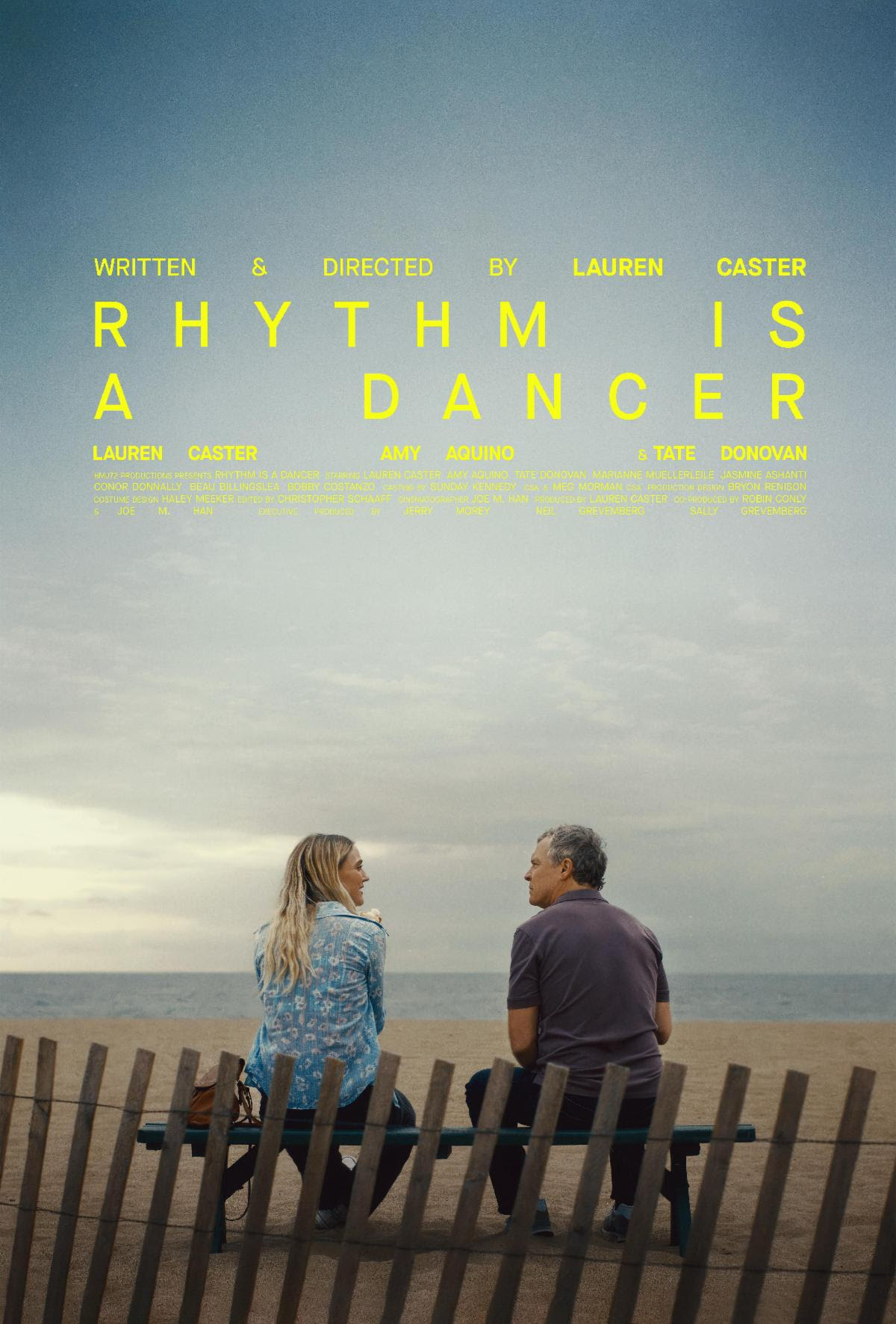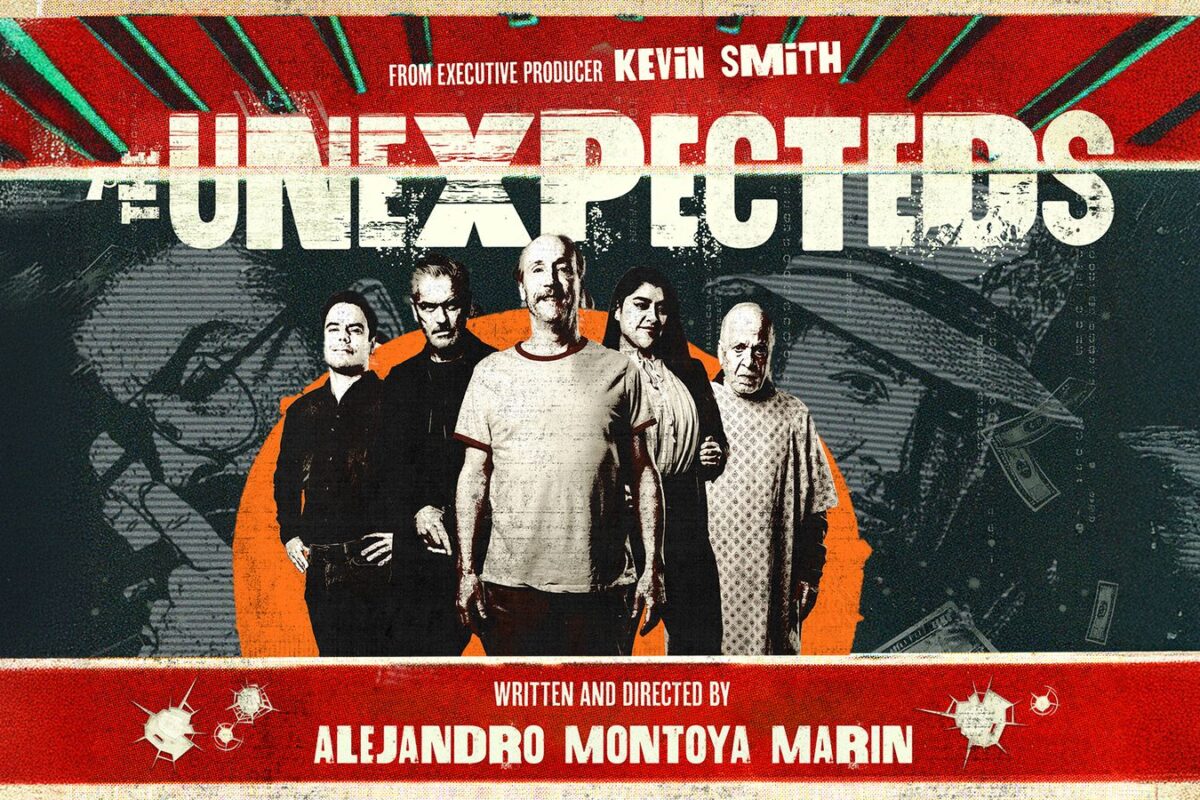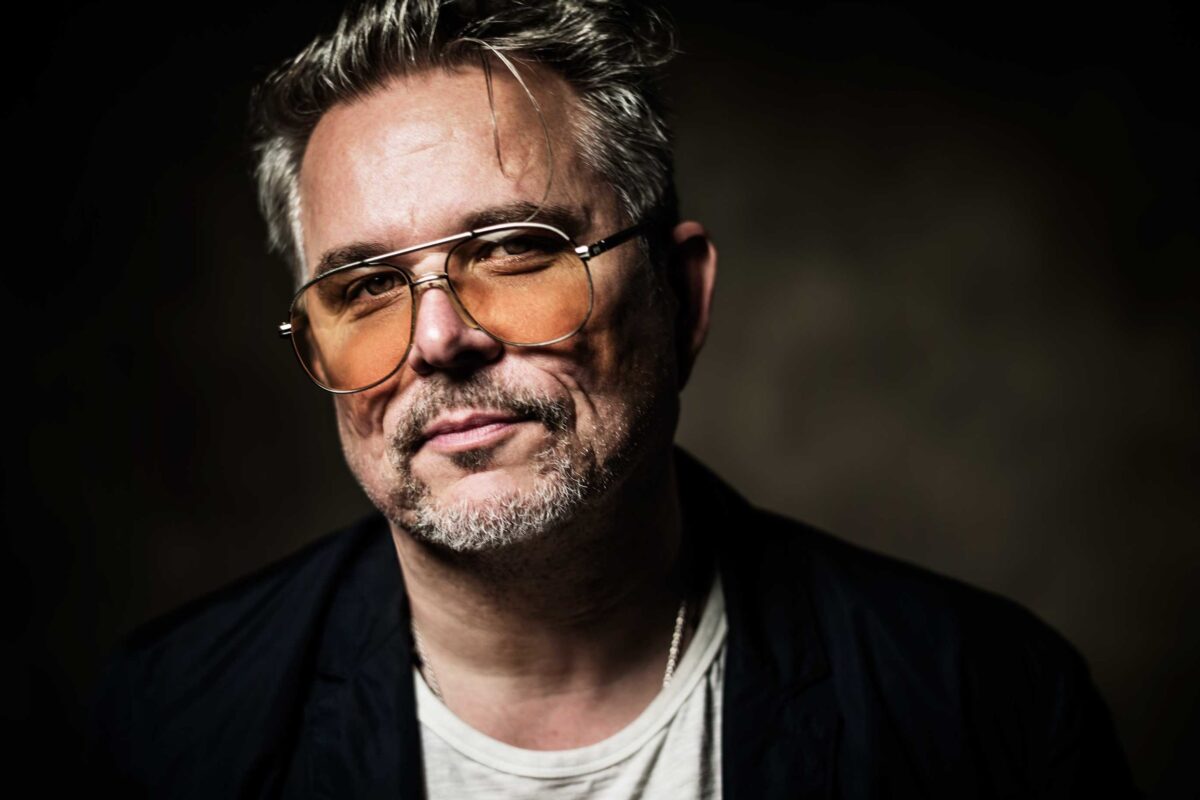
Brian: Thank y’all for sitting down with me. I’m going to start with you [Lauren] first. We talked last night, actually, about this being kind of a story more set in your reality. So, I’m just curious what made you want to tell it?
Lauren Caster: For me, still to this day, have not met anyone whose donor conceived. It’s getting more common now. I’ve never seen a story about it, I’ve never seen anyone on screen talk about it. Also, with the later post adolescence, coming of age, I felt both of those things I hadn’t seen or I don’t see enough, so I decided to combine them and make a story about it.
Brian: Well, the title I want to talk about it, Rhythm is a Dancer, so what made you choose it? And how did it connect to the tone of the message of the film?
Lauren: Oh, gosh, that’s a great question. I love the song. When I was writing it, I originally was thinking that it would be the song for the prom dance. And then we got really lucky with Wang Chung’s “Dance Hall Days.” I felt that song had so much depth to it and really was great for the dance. But I still kept Rhythm is a Dancer as the title because it gave off this vibe of light heartedness with humor, it felt light, it felt right.
Brian: Alright. Amy, Marianne, I’m going to ask y’all a question now. What was your first impression of Lauren’s script when you read it? Was there a particular scene or moment that made you say, “I have to do this.”?
Marianne Muellerleile: For me, it was the first scene. I was so looking forward to it because, of course, I lived in New York for six years. I went to these horrible auditions where you’re talking to a guy who has all the power to hire you, and he says the most inane thing, and somehow you’re supposed to translate what he’s saying into your next take on the audition. I thought it was a hilarious scene. So really, for me, it was the very first scene, I loved it.
Amy Aquino: I love the entire script, I love this storytelling. I do have donor conceived kids in my life. I did love this woman in her relationship with her daughter, that it was honest and that was the problem, that she wasn’t being honest. But then, there was also this stuff underneath. I said this last night, I’m always cast to be the bitch, the judge and I can be very, very, very tough but underneath, I’m actually unbelievably soft, babies, puppies, dogs and just ridiculously soft. I saw that in this woman who had built up and because she’s gay and was gay at a time that wasn’t super cool to be gay. She had to have this built up toughness to survive and do what she wants. But, she still wanted a baby, and she had that baby, no matter what. She loves that baby so much. So, that dichotomy that just drew me to her to be able to play that person, to have this daughter. I loved it, I loved all the different relationships. Intergenerational relationships are really important to me. I did a program called Sages and Seekers, which is across the country, they bring together 15 high school students and 15 people over 55 into the high school. The first couple of weeks, you kind of all hang out together and they ask questions, and then the kids get to pick the older person they want to hang out with. From then on, you have half the session with just you two and the other half with the whole group together. It’s so remarkable. Most of those kids, it’s the first and only relationship they have with somebody that age who they’re not related to. Then they sit there and have these conversations. We would have these conversations about first loves, about insecurities, and it’s like, “oh, you went through exactly the same thing, but in 1962? You have the same insecurities?” It’s really extraordinary. I loved that in this, they get to see her and she gets to see them as people. They see her as a person, not just this little thing, and they can be direct with her in a way that no other, even a related person, can be, because it’s not family.
Brian: Lauren, I know this is your first feature. I know you’ve written and directed three shorts. What was the most surprising lesson you learned through this process? And the difference between a short and a feature?
Lauren: I won a pitch best that The Rap did in 2021 and it was for emerging female filmmakers. And Lifetime bought a script I wrote and made into a movie that I got to produce and shadow the director. So, that gave me so much knowledge on how to approach a feature length because the jump from short to feature is quite dramatic. So, luckily, I had that under my belt. I just did so much prep work because we were an indie film and you never have enough time or money, and it’s quick. When you wear a lot of hats, you don’t have time to watch playback. You have to watch it while you’ve got the monitor right before you start shooting. For me it was the combination of all of that, does that make sense?
Brian: It does. Did you ever, at any point, think, “I’m going to find someone else to star in this, I’m going to stay behind the camera, I’m going to write.” or did you always feel like, “no, I’m the only person that can play this character and I’m going to do all three.”?
Lauren: At first I wasn’t going to play her because it seemed like a lot and then when it came down to it, I was like, “well, I’m going to be on set anyways.”(they all laugh) I can save so much money. I was like, no offense to our union, well I’m going to be there and I’ll save us some money. Clock me in, clock me out but I’m going to be there regardless.
Amy: That’s hilarious.
Brian: Do you eventually see herself thinking you want to be more behind the camera or be in front of the camera?
Lauren: You know, I love doing it all. I really love each position and I don’t mind doing them separately or altogether. I do love behind the camera, though. And I love in front of a camera because you get to work with these amazing people, which is so fun.
Amy: Tell them about your book!
Lauren: Oh my gosh. I made a hundred page book PDF for basically every department.
Brian: That’s good.
Lauren: That was part of my prep so I could just kind of let everything go when I was there and more importantly, so everybody knew exactly what we were making. That helped a lot to just communicate exactly what I wanted to be done. We all knew the exact movie we were making, I didn’t withhold anything.
Amy: I think, If i may? Because I’m still kind of her mother. It also set a tone, because when they received that tone, it was like, “oh, we’re not fucking around here.” She’s putting the work in. The bar is now up here. She has put in all this prep work, which I see with female directors all the time. They are so prepared. The men would never, they would be like, “what are we doing now? Which one? I don’t know. Alright, let’s go.” And the women are like, “okay, you have your thing, right?”
Brian: I love the explosion of women directors. They’re some of my favorite directors now.
Amy: It’s so crazy that before Me Too, they were like, “God, we would totally hire a woman, but there are just no women directors.” And then Me Too explodes, and suddenly it’s like, “there’s all these women directors, where did they come from?”
Brian: A lot of really good ones.
Amy: Of course they were there the whole time, they just didn’t hire them.
Brian: So, this is for all of you. What scene was the hardest to shoot? Lauren, which scene was also the hardest to write on the page?
Lauren: The prom day was the hardest day, I would say, because there were a lot of things. We did the prom in one day and it was 48 setups, two cameras, and it was in the middle of the week. I do not recommend it. We all knew that that was our mountain, and we were all gearing up for it, the whole crew. We knew it was coming, we knew it was going to be a hard and long day, but we did it. There was a moment where we had just two cameras and we’re like go, go, go, get everything and it was chaotic for a quick second, but we got it all done, all 48 setups, it was so crazy. And we didn’t go over time. I don’t like going over, not even just because of overtime, but more for the morale of the crew. Everyone needs a good night’s sleep, and it’s not fun when you go over and you have to come back. It’s really important for me for everyone to have good home lives when they’re working.
Brian: It sounds like, from a person who made a hundred page PDF, that it would be a very organized set, that you run on time.
Amy: Obviously, the pickle ball, which we saw like that much. I’m really, really disappointed. I worked very hard on my pickle ball, but we got a couple of shots in there. Other than that, physically, I think the bathroom scene.
Lauren: That was on day one. Both of those were the first day of shooting.
Brian: It’s so crazy how many things are done on day one of movies, the hardest moments.
Amy: How many days was the shoot?
Lauren: 18 days. I had some B-Roll days with Joe [M. Han].
Brian: 18 days, fantastic. My last question for you is this film deals with both loss and renewal, what do you hope the audience will walk away with?
Amy: That there could be so many different ways to connect and then just the connection itself between human beings, we’ve lost it. And I think it’s responsible for a lot of the terrible things we’re seeing. The human connection is crucial to the health of our individuality and as a society. We need to get back to being open to all those connections, whether they’re by blood or something else. They never would’ve met if it wasn’t for her curiosity and his curiosity. Look how important it ended up being. And it’s not judging anybody’s connections.
Brian: I like that, connection is important.
Lauren: I think at the end of the day, now watching it back with the audience last night, I feel like I also did write it from a place of loneliness and a little existential dread, to be honest. I think that’s the biggest thing, that’s what storytelling is, to know you’re not alone and to have connectedness, sort of piggy back on that. There’s so many different things in film that you can find, whether it’s an unconventional family dynamic that you’re trying to grapple with, that you don’t understand, or identifying who you are. You’re placed in this world and comparing yourself to society and struggling with that, or even mental health issues, not understanding why you’re sad, not knowing where that comes from. At the end of the day, connecting with people around you, whether it’s a different generation, someone who’s not your family and your family, and finding connection in there is really important to me. I think that’s why I love storytelling so much. Because, you leave and you’re like, “oh, somebody else has gone through this” and “I’m not the only person in the world.”
Amy: We start her in New York without any connections that are meaningful. (Everyone agrees) Zero. You see her in these crowds, she’s just passing through, no boyfriend. She says it’s a boyfriend, it’s not her boyfriend, it’s totally unconnected. Even with mom because she can’t be honest with her because she feels like mom is judging her, so that’s not a real connection. And little by little she’s connecting, connecting and she’s afraid to connect with the boy, right. He’s meant to be, “oh, everyone loves him, not me.” You can’t keep running away, you got see. By the end, she is so connected, all these arms are reaching out to her, she’s in all these directions. She went from complete isolation and loneliness and fear to this tremendous, warm embrace from all these different places because she let herself be open to it.
Lauren: Exactly, well said.
Brian: Good luck with the film. Thank you for meeting with me.



